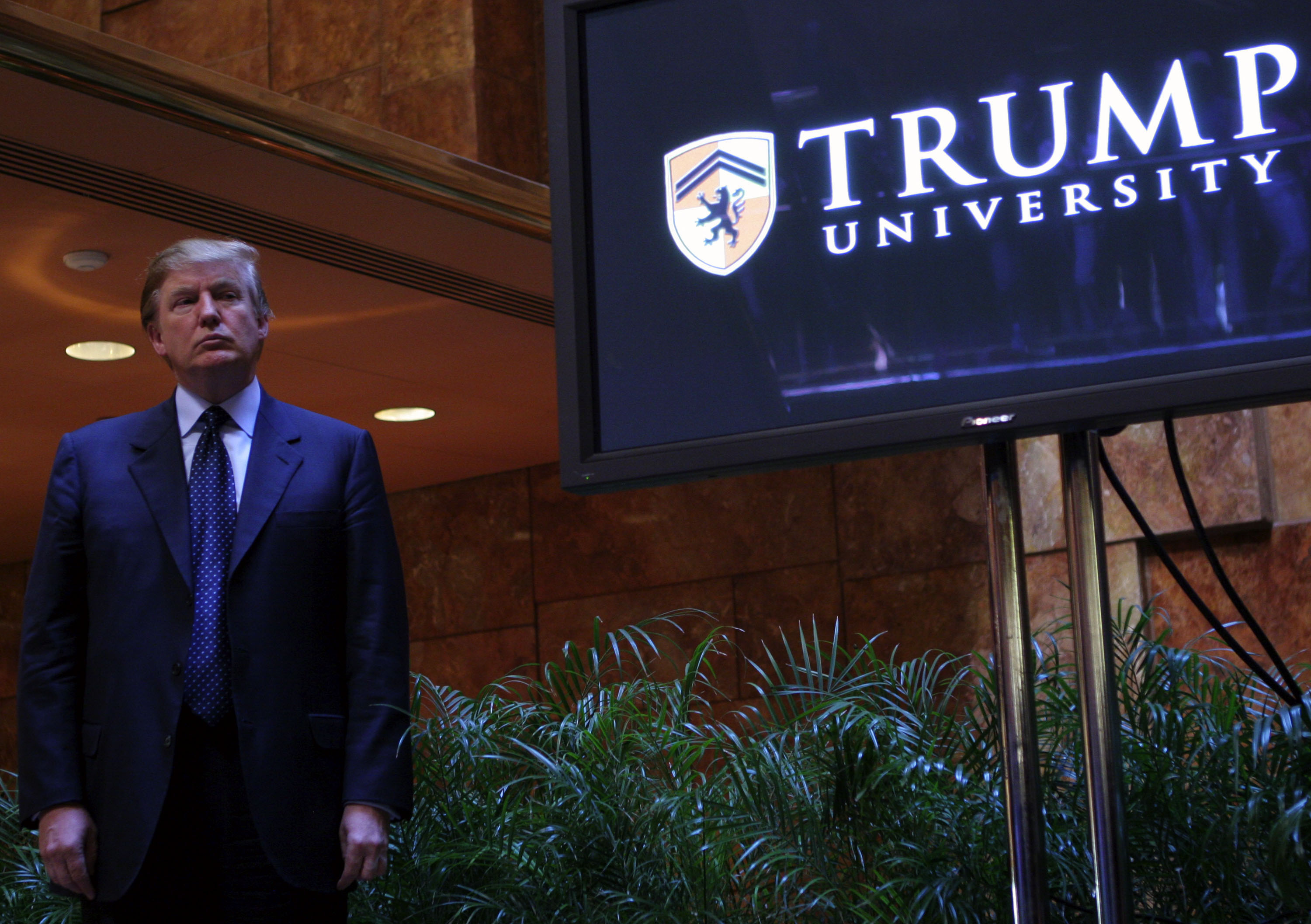Could President-Elect Donald Trump Transform Student Loan Forgiveness Programs?
President-elect Donald Trump may change student loan forgiveness programs, and this decision could have a significant impact on millions of Americans burdened by student debt. As the nation anticipates the new administration's policies, borrowers are left wondering how their financial futures will be affected. With the potential for reform on the horizon, it’s crucial to understand the implications of these changes and how they might shape the landscape of student loan forgiveness. This article dives deep into the topic, offering insights into what borrowers can expect and the broader implications for the education sector.
As the nation's education system continues to evolve, the student loan crisis remains a pressing issue. The possibility of reforms under the new administration has sparked both hope and concern among borrowers. While some anticipate relief through expanded forgiveness programs, others worry about stricter regulations or reduced benefits. Understanding the potential changes can help borrowers prepare for what lies ahead and make informed decisions about managing their debt.
The policies of the incoming administration could redefine the way student loans are handled in the United States. By examining the potential impact of president-elect Donald Trump may change student loan forgiveness programs, we aim to provide clarity and guidance to those affected. Stay informed as we explore the possibilities and implications of these potential reforms.
Read also:Unlock Fun Your Ultimate Guide To Freezenova Unblocked Games 76
Who is President-Elect Donald Trump?
| Full Name | Donald John Trump |
|---|---|
| Birthdate | June 14, 1946 |
| Profession | Businessman, Television Personality, Politician |
| Political Party | Republican |
| Spouse | Melania Trump |
Donald John Trump, the 45th President of the United States, has a storied career as a businessman, television personality, and politician. Born on June 14, 1946, in Queens, New York, Trump rose to prominence through his real estate ventures and the popular reality TV show "The Apprentice." His entry into politics culminated in his election as president in 2016, where he promised sweeping reforms across various sectors, including education and student loans.
What Policies Could President-Elect Donald Trump Introduce?
With president-elect Donald Trump may change student loan forgiveness programs, the focus is on creating a more efficient and cost-effective system. Possible policies include revising repayment plans, adjusting interest rates, and reevaluating the criteria for loan forgiveness. These changes aim to address the growing student debt crisis while ensuring fiscal responsibility. While the specifics are yet to be finalized, the administration's commitment to reform signals a shift in how student loans are managed.
Could President-Elect Donald Trump Eliminate Student Loan Forgiveness Programs?
A common concern among borrowers is whether the administration plans to eliminate existing forgiveness programs. While there is no definitive answer, it’s important to note that any significant changes would require legislative approval. The administration may instead focus on restructuring programs to improve accessibility and sustainability. This approach could involve streamlining processes, enhancing eligibility requirements, and promoting alternative repayment options.
Why Is Student Loan Forgiveness Important?
Student loan forgiveness plays a critical role in alleviating the financial burden on borrowers. With outstanding student debt reaching over $1.7 trillion, many individuals struggle to meet their obligations while maintaining a decent quality of life. Forgiveness programs offer relief to those facing economic hardship, allowing them to pursue career opportunities and contribute to the economy without the constant pressure of debt. The potential for reform under the new administration raises questions about the future of these essential programs.
How Could Changes Impact Borrowers?
As president-elect Donald Trump may change student loan forgiveness programs, borrowers must prepare for potential shifts in their financial strategies. For instance, changes in repayment terms could affect monthly payments, while adjustments to forgiveness criteria might impact eligibility. Borrowers should stay informed about proposed reforms and consider consulting financial advisors to navigate the evolving landscape.
What Steps Should Borrowers Take?
To prepare for potential changes, borrowers should:
Read also:Unveiling The Hub Your Central Point For Connectivity And Innovation
- Review current repayment plans and assess eligibility for forgiveness programs.
- Stay updated on legislative developments and proposed reforms.
- Consider refinancing options if interest rates are favorable.
- Seek professional advice to optimize debt management strategies.
What Are the Potential Benefits of Reform?
Reforms introduced by president-elect Donald Trump may change student loan forgiveness programs in ways that could benefit both borrowers and the economy. By improving the efficiency of existing programs, the administration aims to reduce the overall cost of student loans while promoting financial stability. Streamlined processes and enhanced accessibility could make it easier for borrowers to qualify for relief, ultimately reducing the burden of student debt.
What Challenges Could Arise?
Despite the potential benefits, challenges may arise during the implementation of reforms. Critics argue that stricter eligibility requirements could exclude many borrowers from receiving relief, while others worry about increased administrative complexity. Additionally, any changes in interest rates or repayment terms could have unintended consequences, affecting borrowers' financial stability. Addressing these challenges will require careful planning and collaboration between policymakers and stakeholders.
How Can Borrowers Stay Informed?
Staying informed about developments in student loan policy is crucial for borrowers navigating the changing landscape. Resources such as government websites, financial news outlets, and educational institutions can provide valuable insights into proposed reforms. Additionally, joining advocacy groups and participating in discussions can help borrowers voice their concerns and influence policy decisions.
What Is the Future of Student Loan Forgiveness?
The future of student loan forgiveness remains uncertain as president-elect Donald Trump may change student loan forgiveness programs. While the administration's plans are still in development, one thing is clear: the need for comprehensive reform is urgent. By addressing the root causes of the student debt crisis and implementing sustainable solutions, the nation can work toward a brighter financial future for its citizens.
In conclusion, the potential changes to student loan forgiveness programs under the new administration highlight the importance of staying informed and proactive. As the nation awaits further details, borrowers should take steps to protect their financial well-being and advocate for policies that support their needs. By working together, we can create a more equitable and sustainable system for managing student debt.
Article Recommendations


